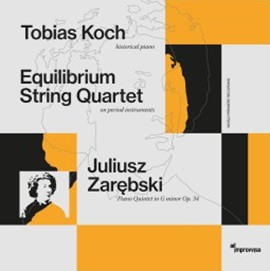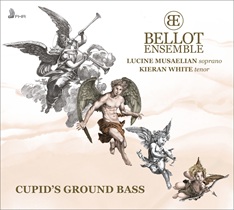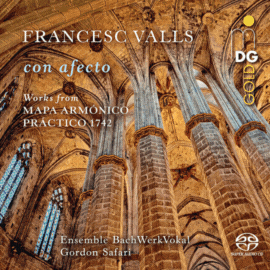Wenn Cupidos Pfeil trifft, ist dies nicht gleich ein Grund, zu jubeln. Zwar schießt der auf Bildern gerne als lieblicher Kerl dargestellte antike Gott Liebespfeile ab – ihre Wirkung kann aber ebenso zu rauschhaftem Glück wie zu tiefster Trauer und Verzehrung vor Liebe führen.
Diesem vielschichtigen Thema widmet sich das noch junge, aufstrebende britische Bellot-Ensemble in seinem Debüt-Album. Und gleich dem Facettenreichtum von größter Zuneigung bis zu krankhafter Hingabe sind auch die Interpretationen des Bellot-Ensembles wunderbar kontrastreich: innig und zärtlich, aufbrausend und leidenschaftlich.
Einmal mehr wird der klangliche Beweis erbracht, dass nicht nur die Kunst der Romantik eine besonders leidenschaftliche war.
Mit seinem leichten, gleichermaßen virtuosen und transparenten Spiel lebt das Bellot-Ensemble alle Höhen und Tiefen menschlicher Gefühle. Diese Interpretationen sind zutiefst authentisch, erfrischend ‘alt’ und atmen in einnehmender Manier den Geist der Improvisation wie etwa in Kapsbergers Intavolatura di chitarone, Libro 4, quasi beste Jazz-Musik aus der Renaissance.
Ganz zurecht erfährt das Bellot-Ensemble in seiner Startphase die verdiente Förderung prominenter Konzertreihen für Alte Musik, denn hier ist etwas Vielversprechendes im Entstehen.
When Cupid’s arrow strikes, it is not necessarily a cause for celebration. Although the ancient god, often depicted in pictures as a charming fellow, shoots arrows of love, their effect can lead to intoxicating happiness as well as to deepest sorrow and consumption by love.
The young, up-and-coming British Bellot Ensemble explores this complex theme in its debut album. And just like the many facets of love, from the deepest affection to pathological devotion, the Bellot Ensemble’s interpretations are wonderfully rich in contrast: heartfelt and tender, fiery and passionate.
Once again, the ensemble provides sonic proof that it was not only Romantic art that was particularly passionate.
With its light, equally virtuosic and transparent playing, the Bellot Ensemble brings to life all the highs and lows of human emotions. These interpretations are deeply authentic, refreshingly ‘old’ and breathe the spirit of improvisation in an engaging manner, as in Kapsberger’s Intavolatura di chitarone, Libro 4, which is almost like the best jazz music from the Renaissance.
The Bellot Ensemble is rightly receiving well-deserved support from prominent early music concert series in its early stages, because something promising is emerging here.























